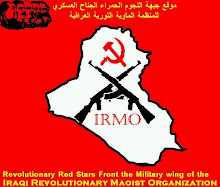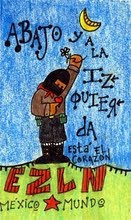May 1 � the World Labour Day when millions of workers across the world stage demonstrations, hold rallies and organise gatherings to commemorate the proud struggle of the working class and sacrifices of the Chicago martyrs for the labour movement besides making a pledge to continue their struggle against the forces of exploitation.
Workers and unions are interlinked. The concept of trade union emerged alongside the industrial revolution in the 18th century when thousands of people relinquished farming and joined industrial units. However, these workers' wages were meagre, working hours were long and working conditions were miserable. The monopoly of industrialists and pathetic conditions of workers led to the birth of unions.
The trade union, which is called labour union in America, is an organisation collectively formed by workers to get better wages and reasonable working hours. Workers elect their representatives through election and any union in an industrial unit having support of the majority of workers is authorised to negotiate wages, bonus and overtime like issues with the owners and this process is called collective bargaining. If its demands are not accepted, a union can go for a strike and in some countries this action is called industrial action. The first ever union was founded in the United States in 1800 that was called Trade Union Movement. Primarily, a union protects the interests of its members. Trade union has passed through many phases of evolution over the last three hundred years and it proved the harbinger of political and social change in many countries. Like other countries of the world, trade union has also seen many eras of ups and downs in South Asia.
At the time of creation of Pakistan, the country had about a dozen trade unions. The biggest and most active of all these was the railway trade union, which played a crucial role in the workers' movement. Another union worth mentioning was that of the port and shipyard union of Karachi. Besides these two unions, process of union making was under way in certain industrial units, but the concept of union making had not been so strong in Pakistan for a long time and there were multiple reasons for this. For example, uncertain social conditions, a nominal number of industries, anti-union political and economic conditions and huge dependence on agriculture. At the time of creation of Pakistan, 86 per cent of the country's population was living in villages, most part of the agricultural land was in the control of a few landlords, majority of the rural population had no land for farming and it was working on the lands of landlords as peasants.
These farm workers had no rights at that time and they have no rights today after the passage of 63 years. Pakistani governments enforced labour laws framed by the British rulers without making any considerable changes to these. Over the last six decades, various governments made minor changes to these laws, but their basic structure remained the same. The changes made to the labour laws during the Ayub regime were worker-friendly to a great extent and this era of 1960s is regarded as the golden era of industrialisation in Pakistan. Though the control of the national economy came in the hands of 22 families during this period of industrialisation, this period was also important with regard to evolution of trade unions here.
The period from 1967-1974 is significant in terms of progress of the trade unions because thousands of unions were registered in this period and historical sit-ins, strikes and protest movements raised their head in this period. Till 1968, our political parties were led by royalty who did not talk about the importance of the working class in the national politics or economy. Even the media and thinkers did not talk about this issue. But the 1968 movement against President Ayub changed everything. Scholars and thinkers started talking about the workers power. It was for the first time workers realised that they were a community. This spirit encouraged the workers and gave them the confidence that they could change their conditions on their own. The workers took control the industrial units and started running them on the basis of equal loss and equal profit.
Acting upon the worker-is-the-
In Pakistan, 80 per cent of the workforce including farm workers is working in the non-formal sector. According to the World Bank, about 10 million workers are home based and their number is consistently on the rise. The 9/11 terror attacks once again jolted the workers of the world and these attacks also impacted the Pakistani workers. Pakistan is a front line state in the so-called war against terror and the result is that the entire country is echoing with explosions. Most national resources are being wasted in this war and its expenditure is increasing with the every passing day and this upward trend has reached 40 of the GDP. Last year, the cost of the war on terror rose to Rs678 billion from Rs484 billion.
The stock market crisis left 20,000 to 25,000 people jobless. Thousands of people were expelled from banks and other companies. Inflation has deprived most people of two meals. The prices of food items have gone up by 200 to 300 per cent. Inflation is at 25.3 per cent and loadshedding has proved last nail in the coffin. Manufacturing was most hit by loadshedding. Textile is the most important industry of the country but loadshedding closed about 400 industrial units and rendered thousands of workers jobless. Instead of evolving a solid and long-term strategy in this regard, the rulers are playing the game of allegations and counter allegations.
Circumstances are extremely dark, but this darkness motivates us to move towards light. Workers are one-third of the total world population. Workers and common people can tear up this curtain of hopelessness and bring the light of progress, equality and peace through their cooperation, courage, vision and continuous struggle. Now we need educated, visionary and committed leadership, which can emerge only from the working class.
Trade union is the best platform for reformation of the prevailing conditions, but this is only possible if hopeless, failed and tired leadership quits and lets the courageous, ideological and strategic people come forward. It's a must for unions that they shun dictatorial attitudes and adopt democratic approaches. One of the reasons of weak unions is that they have always been dominated by men like the political parties. Instead of bringing worker women in the leadership, they did not even include women's issues in the agenda. Union or any other organisation will make progress only if it will give importance to gender equality.
A union will be strong only if it will provide the working women training and opportunities for development and include them in the decision making. The government and the owners must accept that industrial and national progress is linked to worker's prosperity. Working men and women need to know that where opportunist politicians and rulers destroyed this country and its institutions, corrupt, coward and self-centred union leaders could destroy trade unions, worker organisations and even the entire workers' movement. Pakistani people have suffered a lot at the hands of such people. Thinkers, scholars and religious figures also fall in this category. Therefore, the working class needs to do everything very carefully. We dedicate this May Day to men and women who are hopeful and dreaming of prosperity in these tough circumstances and trying to turn their dreams into reality.
Aima Mahmood,
Executive Director
Working Women Organization
93-A, Nawab Town, Raiwind Road
Lahore, Pakistan.
Tell: + 92 42 35314365/6151635
Fax: + 92-42-35315823
Email: aimawwo@brain.
wwo@brain.net.
HOME:
http://www.groups.yahoo.com/group/MAOIST_REVOLUTION
Red Star - Nepal
http://krishnasenonline.org/main/index.php?pubid=87
Unified Communist Party Of Nepal(Maoist)
http://www.cpnmintl.org/
Unified Communist Party Of Nepal (Maoist)
http://www.ucpnm.org/english/index.php
Nepalese Solidarity Forum, Switzerland 's Activities, News, Updates & Solidarity
http://www.insofswiss.info/
Lal Salaam Canada Nepal Solidarity Group
http://lalsalaamcanada.blogspot.com/
Philippine Revolution
http://www.philippinerevolution.net/
Revolution in South Asia - US based solidarity with Maoist Revolutionary forces
http://southasiarev.wordpress.com/
REVOLUTION http://www.rwor.org
Indian Revolution
http://www.bannedthought.net/
http://www.bannedthought.net/India/CPI-Maoist-Docs/index.htm
* Communist Party of India (MAOIST)
REVOLUTIONARY COMMUNIST PARTY (CANADA)
http://www.pcr-rcp.ca ENGLISH
http://www.pcr-rcp.ca/fr/ FRENCH (Fran�ais)
http://www.lionesto.net/
Italian section:
Maoist Communist Party Of Italy
http://www.prolcom.altervista.org
Guerre Popolari (People's War)
http://www.prolcom.altervista.org/guerre%20popolari.htm
Maoist Communist Party of Italy led - Red Block Youth blog
http://www.redblock-it.blogspot.com
Selected Works of Mao Tse-tung
http://www.marxists.org/reference/archive/mao/index.htm
http://www.marxists.org/reference/archive/mao/selected-works/index.htm
COMMUNIST PARTY OF IRAN(MARXIST_LENINIST_MAOIST)
http://www.sarbedaran.org/ Farsi
http://www.sarbedaran.org/language/index.htm English
Communist(Maoist)Party of Afghanistan (English)
http://www.sholajawid.org/
A World To Win AND R.I.M.
http://www.aworldtowin.org
A World to Win News Service, direct to your mail Box: http://uk.groups.yahoo.com/group/AWorldToWinNewsService/
To subscribe, click: aworldtowinnewsservice-subscribe@yahoogroups.com




